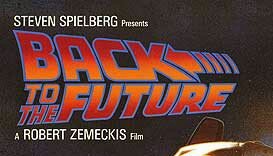The lies we tell ourselves - the halo effect

You're at a summer camp and have made some friends on your first day. You get along with three people particularly well: they are nice, friendly, and one you find very attractive.
On the second day you need to form a team to build a raft. You choose the three you like the most rationalising that since they are nice, they must be good at raft building.
Congratulations! You've just fallen victim to the halo effect!

Soldier evaluations
The halo effect is one of the oldest cognitive biases. The term was coined in a research paper by Edward Thorndike almost one hundred years ago in 1920.
In an experiment he asked two commanding officers to evaluate their soldiers over a range of qualities such as physique, intellect, leadership, loyalty and cooperation.
He discovered that there was too high a correlation in the responses. For example, if a soldier was rated high in terms of physique, the soldier would also be rated high in terms of intellect, leadership and character. On the other hand, if a soldier was rated negatively in one characteristic, this would also correlate with the soldier's other results.
Marketing
The halo effect is used very often in marketing to try to associate a new product with something or someone that has a positive image in the hope to attract more customers.
In most film posters, for example, the producers are accredited in small text at the bottom; that is, unless you're Steven Spielberg.


Due to his celebrity and fame in film making, anything he touches warrants his name being up front and center because, due to the halo effect, it becomes more attractive.
Similarly, films that star Oscar winning actors and directors add this to the trailer and advertising, hoping you'll associate their previous and unrelated success with the new movie. In fact, they don't even need to win. Being nominated is enough to allow the marketing team to associate the movie with the prestigious award ceremony.
What can we do about it?
When performing an evaluation, whether it's for a product or a person, try to look past general feelings about what you're evaluating. It can help to consider beforehand what traits are important and concentrate on those during the evaluation.
When being evaluated you can take advantage of the halo effect by first talking about something you are good at and follow with a different trait you'd like to induce the interviewer into thinking you're equally good at.
Banner photo by Gordon Wrigley used under the CC-BY-2.0 license. Changes were made to the original.
Other posts in the series:
- The lies we tell ourselves - the gambler's fallacy
- The lies we tell ourselves - the sunk cost fallacy
- The lies we tell ourselves - the framing effect
- The lies we tell ourselves - cognitive dissonance
- The lies we tell ourselves - confirmation bias
If you liked this post, or any others I've written, don't forget to follow me.
I am really enjoying this series on biases and fallacies that you're making, bitcalm. I'm looking forward to the next one. The sunken cost was my favorite by far, just because of how often I run into it and have to explain to people what they're actually arguing in favor of.
Keep at it!
Thanks, I'm glad you're enjoying them. There are hundreds of cognitive biases, and while I certainly won't cover them all, I do plan to write about a few more.
I would say that I am more of a fan of the @halo effect
I'd fall victim to this effect gladly :)
I was wondering how long it would take for a comment like this :)
Nice read
always thought tis was called first Impressions? we all do it- good post
It not so much the first impression but the overall opinion you have of someone. Absolutely true that we all do, and even knowing about it won't stop it completely. We lie to ourselves even when we have the knowledge to know better ;)
it could be somewhat associated with first impressions, but you being aware of it, and chances are you're less prone to be susceptible to the effect.